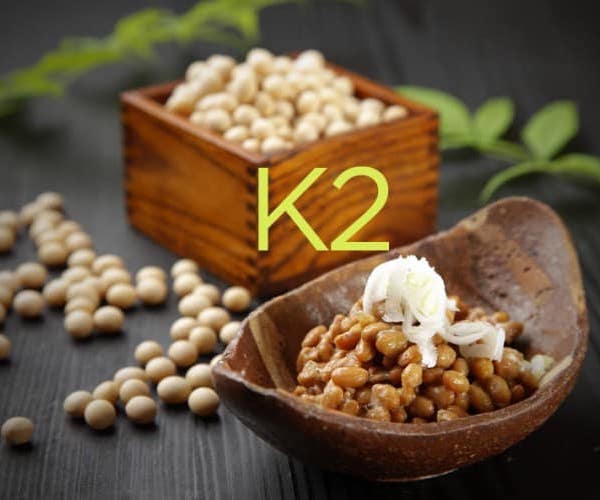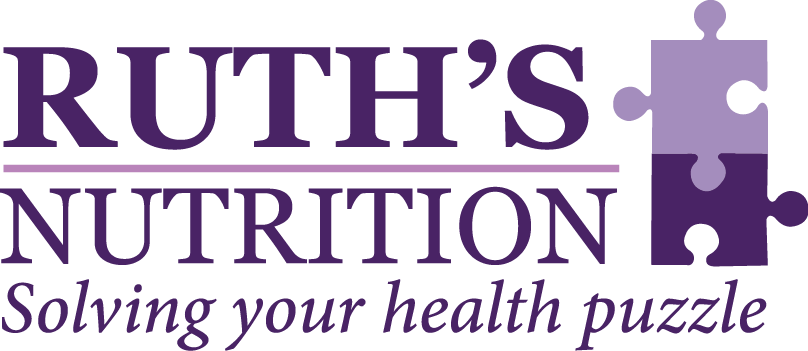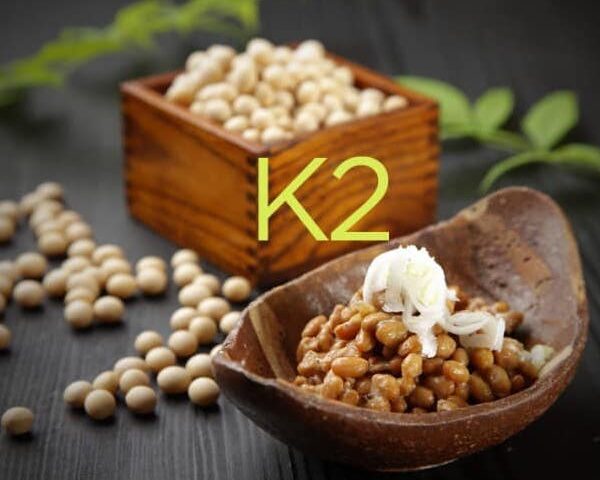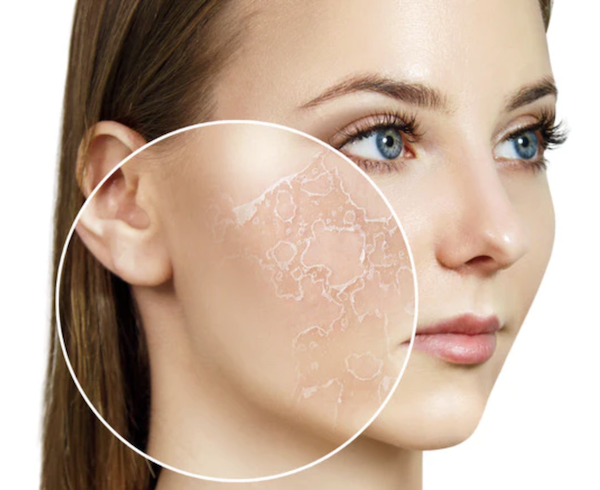Are you getting enough of this lesser-known vitamin?

Most of us associate vitamin K with leafy greens and its ability to help blood clot. But that’s just vitamin K1. Vitamin K2 is another matter altogether, and it’s considered by many to be the more important nutrient. It plays a critical role in bone health, heart health, and it’s not commonly found in the American diet.
While vitamin K1 (phylloquinone) is found in plants, vitamin K2 (menaquinone) is found in fermented foods. Its most potent source is fermented soy, or natto, which has a taste and consistency most American’s don’t like. You can get some from sauerkraut and grass-fed butter, but the most reliable source is a supplement.
But first, why do we need vitamin K2 at all? Because vitamin K2 is absolutely necessary for healthy bones and arteries.
Bone health
Bones have a hard outer shell and a spongy inner matrix. Every 7 to 10 years, your entire skeleton is remodeled and replaced, with calcium being leached from bone into the bloodstream to meet metabolic needs and then rebuilt by cells called osteoblasts. They produce osteocalcin, which helps take calcium back from the blood and bind it to the bone matrix. But osteocalcin cannot perform that function without adequate vitamin K2 to activate it. If vitamin K2 is deficient, osteoporosis can result.
A three-year study of nearly 250 postmenopausal women found that those taking vitamin K2 supplements had much slower decreases in age-related bone mineral density. Long-term studies in Japanese women found that diets high in vitamin K2 reduce spinal fractures by 60%, hip fractures by 77%, and all non-spinal fractures by 81%. In Japan, vitamin K2 supplements are officially recommended for preventing and treating osteoporosis.
Heart health
While vitamin K2 helps direct calcium into the bone matrix, it also helps direct it away from soft tissues like arteries. Vitamin K2 activates MGP (matrix GLA protein), which inhibits calcium from depositing in blood vessel walls. That reduces the risk of atherosclerosis, a major cause of cardiovascular disease.
A study in the Netherlands enrolled nearly 5,000 healthy men and women older than age 55. It found high dietary intake of vitamin K2 was associated with a 50% reduction in death from cardiovascular issues related to blood vessel calcification and a 25% reduction in all-cause mortality.
A recent clinical trial studied nearly 250 postmenopausal women for three years and found a daily dose of 180 mcg of vitamin K2 improved bone mineral density, bone strength, and cardiovascular health.
Vitamin K2 forms
Vitamin K2 has several subtypes, but the most beneficial and commercially available forms are MK-4 and MK-7. MK-4 is considered less active than the MK-7 form, while MK-7 is the best absorbed and has the highest beneficial activity.
Worth noting
Vitamin K2 pairs especially well with Vitamin D3, especially for bone health. Both vitamins are fat soluble, and while vitamin D3 directs the absorption of calcium from your intestines into the blood, vitamin K2 directs that calcium into bone.
It should also be noted that taking a statin drug depletes vitamins K2 and D3 (as well as CoQ10, active selenium, and testosterone).
REFERENCES
Journal of Nutrition & Metabolis
Interplay between Vitamins D & K




